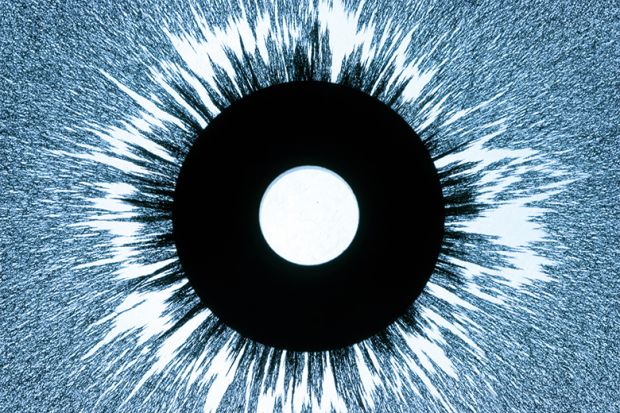Germany hopes to train a “new type of young scientist” in special graduate schools that mark a new phase of collaboration between its traditionally separate universities and networks of research institutes.
Three Max Planck Schools, aimed at attracting the most talented doctoral students from around the world, will start accepting applications this autumn.
Speaking to Times Higher Education at the Max Planck Society’s administrative headquarters in Munich, president Martin Stratmann said that the “basic idea is we team up with the best in a given field, between German universities, Max Planck and others”.
The first three schools, which will run for a trial period of five years backed by €9 million (£7.9 million) a year of federal money, will focus on cognition, photonics and the biology, chemistry and philosophy of life.
Although named after the Max Planck Society, Germany’s network of basic research institutes, the schools will involve researchers from 21 different universities and 31 institutes. The idea is not to concentrate these researchers in one geographic area, explained Professor Stratmann, but to allow students to move between existing institutions. They will also have the option to do a “fast-track” master’s degree before moving on to a doctorate.
The schools are also designed to be highly interdisciplinary. The cognition school includes psychologists, artificial intelligence experts, neuroscientists and cognition experts, allowing the training of a “new type of young scientist” who “in his own mind brings these things together to form new science”, Professor Stratmann added.
The schools are the latest attempt by Germany to introduce peaks of “excellence” into its traditionally equal system in order to compete with the intense concentrations of top researchers and money in universities like Oxford and Harvard.
Germany’s relatively powerful federal states, lack of a dominant capital city like London or Paris, and deliberate efforts after reunification to distribute research institutes across the poorer East, mean that money and top researchers have not condensed into a single region, like the UK’s “golden triangle” of Oxford, Cambridge and London.
While arguably good for the country’s broader equity, German research leaders fear this puts it at a disadvantage when trying to attract the world’s top minds.
The Max Planck Schools “aim to concentrate Germany’s decentralised research excellence and thus to increase the attractiveness of the German science landscape for top international students and graduates”, the Max Planck Society says.
Universities hope that the schools will channel talented doctoral students into collaboration with university-based academics who are not able to set up a graduate school of their own. The idea is to make Germany’s “dispersed research excellence visible internationally”, explained Horst Hippler, president of the German Rectors’ Conference (HRK), when greeting the pilot last year.
But the idea has not been without controversy. Germany’s group of biggest research universities, the U15, last year reportedly voiced their concerns about the schools to Germany’s research minister, fearing that they could undermine their exclusive right to award doctorates. The HRK, a broader grouping of all universities, has been publicly supportive – although it has stressed that universities alone will be responsible for awarding doctoral degrees and upholding their quality.
“I think universities from the beginning have been afraid that we want to step into their business, which is not true – the Max Planck business is distinctly different for good reasons,” Professor Stratmann said.
Register to continue
Why register?
- Registration is free and only takes a moment
- Once registered, you can read 3 articles a month
- Sign up for our newsletter
Subscribe
Or subscribe for unlimited access to:
- Unlimited access to news, views, insights & reviews
- Digital editions
- Digital access to THE’s university and college rankings analysis
Already registered or a current subscriber?








